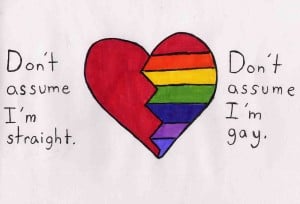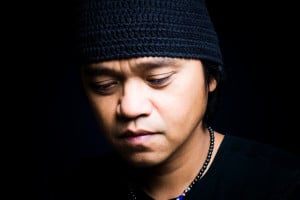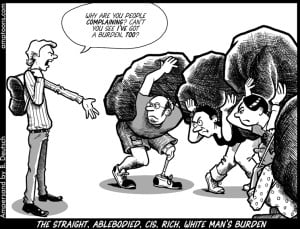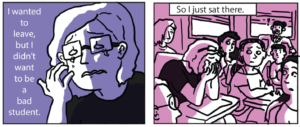
Source: XO Jane
Originally published on xoJane and cross-posted here with their permission.
A year into our relationship, Matt finally revealed why he had never introduced me to his family: “Once, a black and white couple walked by my grandfather and me on the street, and he turned to me and said, ‘That’s just not right.’”
Matt was from Ashland, Kentucky, a small town where almost everyone was white. All of his relatives had either brown or dirty blonde hair, green or blue eyes. I had black hair and brown eyes.
Before he moved to California, he had only known two Asian people — Sam, a wealthy study-abroad student from Seoul, Korea; and Derek, a half-white, half-Japanese boy, whom everyone in town identified as strictly Asian.
When Matt and I had first started seeing each other, I often feared that he liked me only because, to him, I was a rare sight. His comments about my physical features often triggered that same concern, but I put it out of my mind. I didn’t want to think about it.
The same day he told me about his grandfather, he invited me to celebrate July 4th at his house because his parents always had a large family reunion during that time. “You would get the most face time with everyone,” Matt said. I said yes only because I didn’t know how to say no.
Within two months, I was sitting at an airport in Kentucky with a suitcase filled with my most conservative clothes and shoes. When I finally arrived at his house, his parents greeted me at the door with a hug. Matt’s family showed me around the house and took me out for ice cream after dinner. I smiled when they looked over at me and laughed when they made jokes.
But later that night, in bed, I kept cell phone propped up on the pillow next to me. I didn’t call home, but I needed to feel like I could.
Matt’s parents were polite and kind, but I knew their kindness was not completely sincere. We had almost met once before, when they had flown out to southern California for vacation. Matt had invited me to join the three of them at the beach, but his father told him that it was unnecessary for them to meet me.
I was already packed and ready to go when Matt told me that it would be best if I stayed behind.
On July 4th, Matt took me to a family reunion potluck at his uncle’s house. His aunt and uncle greeted me in the same friendly manner.
His relatives complimented me on my “exotic” looks. I wanted to frown, but instead, I smiled and thanked them.
When we walked into the living room, I immediately lost myself in the crowd. Everyone was white and towering over me. Although I had grown up in a predominantly white community, I had never felt more aware of my race than I did at that moment.
I reached over for Matt’s hand, but he gently pushed mine aside and said, “Not here.”
When his grandparents finally arrived, they greeted me with handshakes instead of hugs. Matt generously introduced me to his grandparents and other relatives as his “friend.”
We spoke with a number of people who could not seem to remember my name, even if I had introduced myself a minute before. Conversation was often directed toward Matt instead of me. He didn’t notice and continued. I stood by his side at the party, but I had never felt more distant from him.
Later at the party, Matt talked to his relatives about his negative experiences at college. Matt said that he’d felt marginalized by our school because he was white. He didn’t think minorities should be treated better in college because that wasn’t how the “real world” worked.
I was stunned by his comments. He seemed to have forgotten that I was part of this minority.
I turned to him and spoke out. I tried to explain that moving beyond the status quo was the whole point, that our college wanted to empower marginalized communities by providing students with opportunities that may not otherwise be available.
Matt looked at me with disgust.
He ignored me and continued to defend his point of view. I deferred to his opinion and stopped talking.
When we left the party, Matt told me that he thought it all went well. His parents agreed. I nodded, even forced a smile, but when we arrived at their house, I said my goodnights quickly, rushed off to my room, and closed the door. I heard Matt and his mom in the hallway talking quietly.
Part of me wanted to open the door, pull his mother aside and ask her every question running through my head: What was I doing wrong? What should I have talked about? Was our relationship destined to fail?
I waited until the hallway was silent before I turned off the lights and got in bed. I knew things would not end well, but I tried to put it out of my mind.
When our relationship finally ended, I struggled because I’d given up so much of my identity to accommodate his.
I didn’t know how to define myself without him.
But I realize now that our relationship didn’t fail simply because he was white and I was Asian. It failed because we had different values systems.
Although Matt did not use racial slurs against me or tell me I was unequal because I’m Asian, he had racial biases that prevented him from seeing people of color as the same as him. He didn’t think minorities should be afforded equal opportunities because he benefited from white privilege and wanted to maintain that. He viewed me as an exception, someone who could pass as white, even though his family didn’t.
But I’m not white. I don’t identify as white or as a member of the “model minority.” I don’t want to pass or be privy to conversations supporting white privilege.
I know this now, but back then, I was too afraid to speak up, and too afraid to be alone.
These days, I am in a much better place. I’m in a healthy relationship with a person I love who accepts me for me.
It took me a long time to get here, but I know exactly who I am now.
I no longer waste my time on people who judge others based on the color of their skin, and I will never, ever allow myself to compromise my identity for a relationship again.
[do_widget id=”text-101″]
Tiffany Tsai is a staff member at xoJane where she moderates social media and writes articles. A few of her favorite pastimes are reading, watching movies, and playing with her two dogs and her fat bunny, Bunzo. Follow her on Twitter.
Search our 3000+ articles!
Read our articles about:
Our online racial justice training
Used by hundreds of universities, non-profits, and businesses.
Click to learn more





















